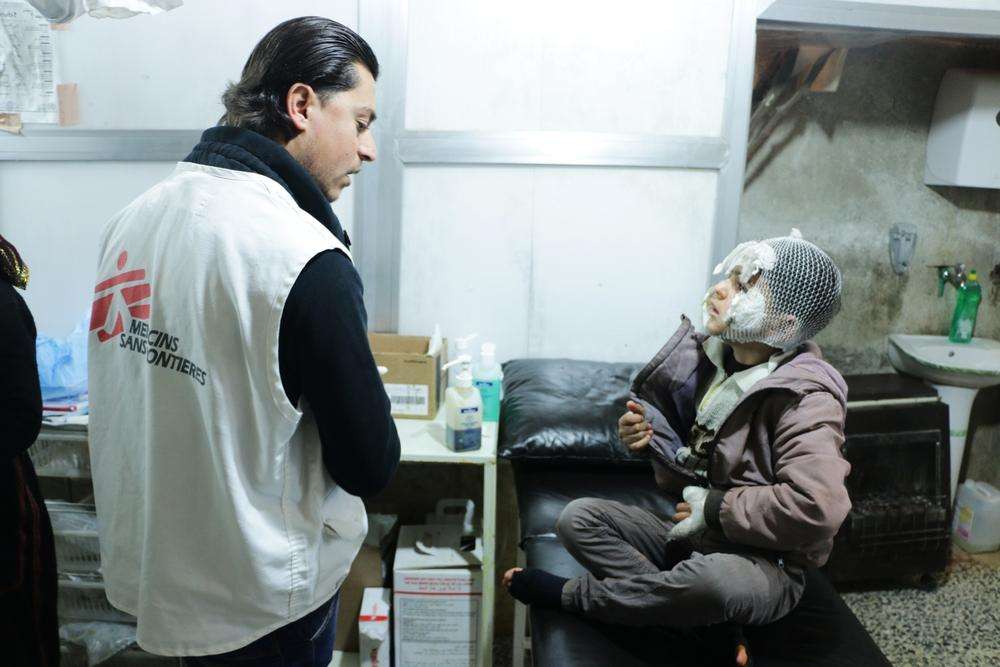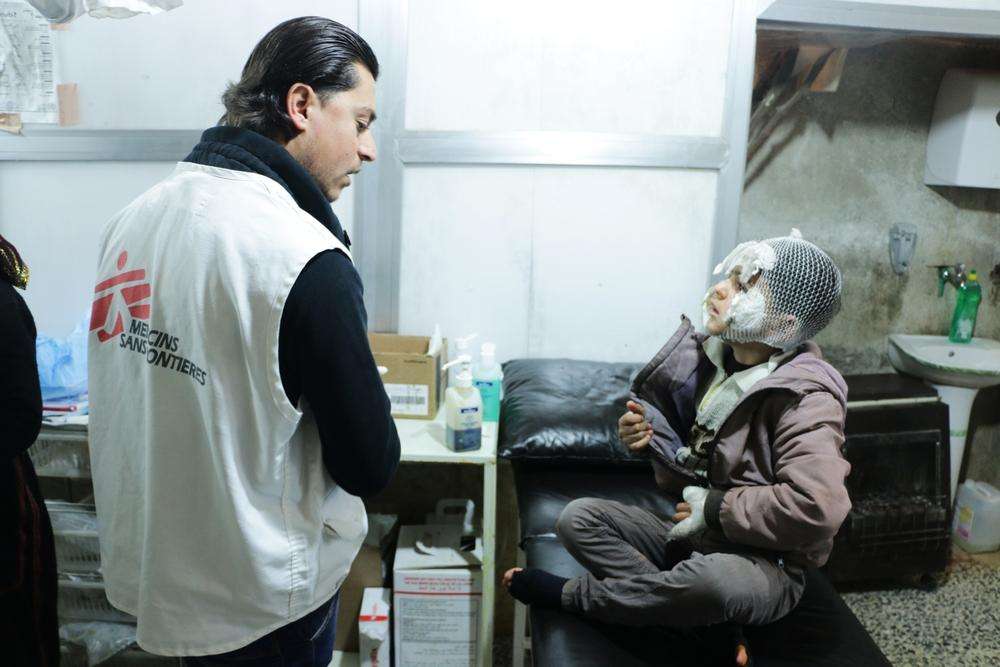Now in its fifth year, the conflict in Syria has claimed the lives of more than 220,000 people and displaced approximately ten million. To respond to the overwhelming need for medical care, Doctors Without Borders/Médecins Sans Frontières (MSF) has spent the last three years working with Syrian doctors who remained in the country throughout the conflict to support a growing number of underground and improvised medical clinics. This program of support operates in both government- and rebel-controlled territory.
Anadan hospital near Aleppo is one of the many hospitals MSF supports with donations of drugs and medical material. Dr. Hassan Hamsho, the director of the Anadan hospital near Aleppo, explains how they manage to provide medical care in this rebel-held area.
“The town and hospital of Anadan are 13 kilometers (approximately 8 miles) northwest of Aleppo, between three frontlines. Insecurity is the main problem in Aleppo and Anadan. Artillery fire, bombs, and rockets are constant and widespread. People are terrorized.
The second problem is economic. Previously, hundreds of factories in Aleppo provided lots of jobs. There were civil servants and merchants. Today, unemployment stands at 90 percent. People can no longer do the things they used to do when the situation was normal.
Syria: Providing Care Wherever Possible
At the outset, we didn’t need to provide specialized medical care. We just treated the wounded in field hospitals because they would be arrested if they went to public hospitals. Anadan’s residents went to the government-held areas to seek treatment for typical medical problems, but that became impossible. For them, an ophthalmologist or another specialist is just as important as a general surgeon. Now the region is completely isolated and it takes five or six hours to get to Aleppo. You have to make a huge detour to avoid the government-held areas and it’s very dangerous.
I began doing this medical work after I spent 74 days in the prison operated by the Air Force intelligence directorate. I had been arrested on August 21, 2011, and accused of having coordinated demonstrations. After that, I understood that things were not going to go well. Several of us set up a field hospital in a private house with an operating room and an emergency room.
When the army entered Anadan on April 5, 2012, they burned the hospital. We opened another one, which was bombed, and then we set up outside the town for two months. Finally, on January 2, 2013, we opened a hospital with three operating rooms, two emergency rooms, and two 11-bed hospitalization rooms in an unfinished house.
Syria: "We Often Have to Search for Them in the Ruins"
Today, we have obstetrics and gynecology departments, a cardiology department, an emergency department, and three operating rooms where we perform general and orthopedic surgery. We also have a clinic for outpatient visits and an ophthalmologist. With a radio, lab, pharmacy, and four three-bed rooms for post-operative care, we can meet many medical needs. But it’s not like we have a normal heating system! We have just a few kerosene heaters.
Emergency cases can be transferred to Turkey, but not those that involve an uncomplicated cardiac problem. There are medical posts close to the front lines. Cars and ambulances are sent out to pick up the wounded. We have two cars at our hospital.”





